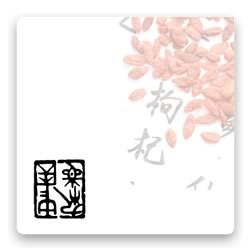We use cookies to make your experience better. To comply with the new e-Privacy directive, we need to ask for your consent to set the cookies. Learn more.
Locating Active Acupuncture Points: The Solution to a Paradox in Acupuncture Research?
Did you know?
For the cost of 5 articles (students) or 10 articles (practitioners) you can buy a year's access to the entire Journal of Chinese Medicine article archive.
£4.00
VAT Exempt
In stock
SKU
JCM108-32
The Society for Acupuncture Research recently pointed out a trend in the majority of acupuncture research studies
that may come as a surprise to many acupuncturists: that true acupuncture does not significantly outperform sham
acupuncture. However, examination of a selection of research articles published during the last decade reveals that
the researchers disregard diagnostic palpation in their studies and instead rely solely on ‘official’ textbook point
descriptions. This article argues that although choosing and locating acupuncture points according to textbook
descriptions is how acupuncture is typically taught to students, palpation is crucial for tailoring point selection and
location to individual patients in the clinic, thereby ensuring therapeutic success. Acupuncture practitioners should
first learn to identify active points on themselves by distinguishing the various sensations that each point triggers in
the body and how an active point feels under a palpating finger; they can thereby learn to recognise active points
in their patients, thus improving the results of their treatment. This approach to acupuncture should be utilised and
tested in future acupuncture research, which in the author’s opinion would change the current trend in acupuncture
research referred to above.
that may come as a surprise to many acupuncturists: that true acupuncture does not significantly outperform sham
acupuncture. However, examination of a selection of research articles published during the last decade reveals that
the researchers disregard diagnostic palpation in their studies and instead rely solely on ‘official’ textbook point
descriptions. This article argues that although choosing and locating acupuncture points according to textbook
descriptions is how acupuncture is typically taught to students, palpation is crucial for tailoring point selection and
location to individual patients in the clinic, thereby ensuring therapeutic success. Acupuncture practitioners should
first learn to identify active points on themselves by distinguishing the various sensations that each point triggers in
the body and how an active point feels under a palpating finger; they can thereby learn to recognise active points
in their patients, thus improving the results of their treatment. This approach to acupuncture should be utilised and
tested in future acupuncture research, which in the author’s opinion would change the current trend in acupuncture
research referred to above.
| Author | Vladislav Korostyshevskiy |
|---|---|
| JCM Issue | JCM108-32 |
Write Your Own Review
* Orders shipped outside of Europe are eligible for VAT relief and will not be charged VAT.

